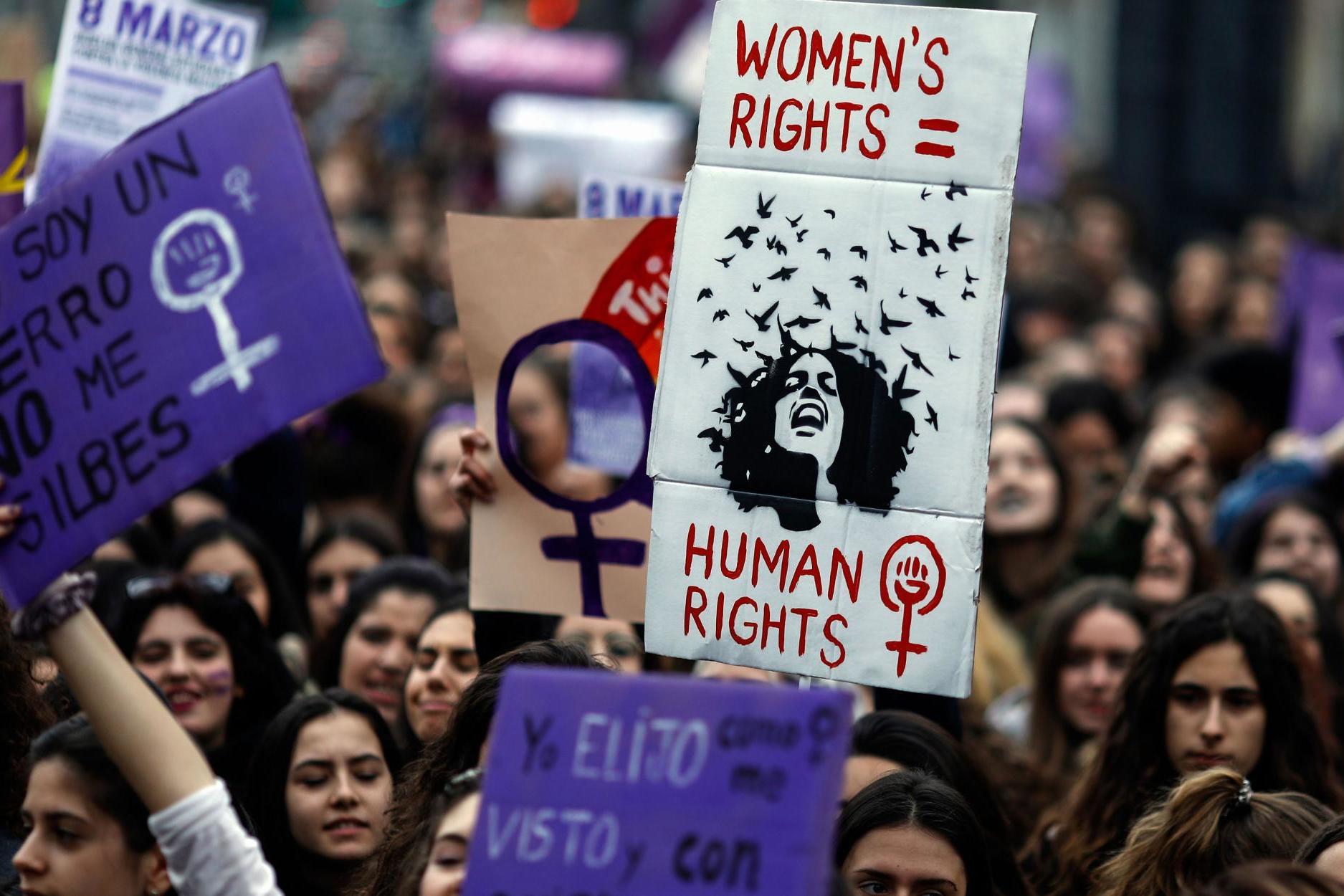Countries with strong women's rights likely to have better health and faster growth, study finds
Study finds trend could even be witnessed in resource-poor countries

Your support helps us to tell the story
This election is still a dead heat, according to most polls. In a fight with such wafer-thin margins, we need reporters on the ground talking to the people Trump and Harris are courting. Your support allows us to keep sending journalists to the story.
The Independent is trusted by 27 million Americans from across the entire political spectrum every month. Unlike many other quality news outlets, we choose not to lock you out of our reporting and analysis with paywalls. But quality journalism must still be paid for.
Help us keep bring these critical stories to light. Your support makes all the difference.
Countries which have a strong track record on women’s rights are more likely to have better health and faster growth than nations where women’s freedoms are overlooked, new research has found.
The study, which was published in the journal BMJ Open, discovered this trend could even be witnessed in resource-poor countries.
Researchers argue women’s rights have often been disregarded, despite many parts of the world having made good economic progress.
“Today, the value of human rights has often been questioned from an economic standpoint,” researchers say. ”However, our data finds that rather than limit progress, human rights, and [women’s economic and social rights] in particular, can only benefit them”.
The study found women’s rights have more of an impact than purely on economic and social, or civil and political rights alone, and discovered there was a direct link between protecting women’s rights and improvement in health and sustainable development.
Researchers looked at databases which held information on health, human rights, and economic and social rights for 162 countries for the period of 2004 to 2010.
Overall, nations with robust women’s rights had better health than those countries where women’s rights were only modestly or poorly respected. Health indicators included disease prevention, such as vaccination, reproductive health, death rates and life expectancy.
The study ultimately argues gender equality is not only a women’s issue but instead a development issue.
It found in countries where women’s rights were properly safeguarded, but access to hospital beds and doctors was nevertheless below average, health outcomes were still consistently better than average.
“The results confirm that even with a lack of resources, if a country has a strong human rights structure, the health outcomes are better,” researchers said.
It comes after a study on child mortality found sexism was cancelling out girls’ inbuilt biological survival advantage. Researchers at Queen Mary University of London found levels of gender inequality across the world are linked with disproportionate death rates among girls under five years old.
The research found the unequal treatment of women in society could be impeding the natural biological advantage they have over males for survival, as women tend to live longer than men almost everywhere worldwide and in some countries, they do so by more than a decade.
“The more unequal a society, the more girls are penalised in terms of their survival chances, particularly in lower-middle income countries,” lead researcher Dr Valentina Gallo said. “Gender inequality then perpetuates itself through the generations via these unfair odds of survival.”
She added: “Because of a sexist ideology which values boys over girls, young girls are often at greater risk of mortality through diminished access to health resources, as well as through heightened exposure to health risks. These girls are also further exposed to this risk via their mothers, who may themselves be penalised and valued less than mothers of sons, and less able to provide for their daughters.”
Dr Gallo said the findings of the study, which was published in October last year, were “very disturbing”, adding she that she had been surprised by the findings.
While past studies have demonstrated greater gender inequality is linked with higher infant mortality until this piece of research it was unknown whether boys or girls were more affected by this.
Subscribe to Independent Premium to bookmark this article
Want to bookmark your favourite articles and stories to read or reference later? Start your Independent Premium subscription today.
Join our commenting forum
Join thought-provoking conversations, follow other Independent readers and see their replies
Comments